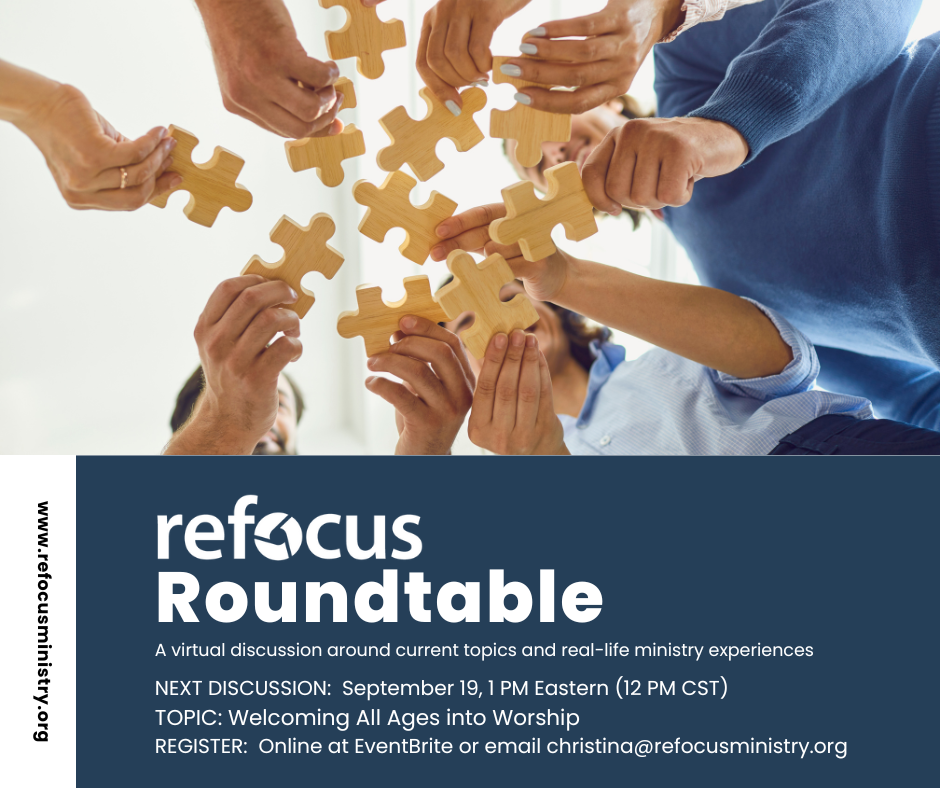Once when my daughter was younger (11 years old), she had a conversation with me about our neighbors at the time. “I really like them,” she said. “Me too! Why do you like them?” I asked. “Because when I talk, they listen to me.” she replied.
It was an interesting response. From a mom’s perspective, I thought that we, her parents, did a pretty good job of listening when she talked and I never really felt like her voice went unheard, but obviously, these particular neighbors stood out to her as unusual. I asked her about that. Her response was convicting.
“Well, yeah, other people listen but most adults only listen halfway. They don’t really care about what you are saying. They are just polite and listen because they have to. But (our neighbors) really listen. They ask questions and they laugh and they treat me like an adult. I like being heard. It feels good. It feels like I belong.”
Her words struck me. Often this same theme repeatedly came up again and again when people left the church– they didn’t feel like they belonged. They felt like they belonged in children’s ministry when they were little. They felt like they belonged when they were in youth ministry as teenagers. But once they were in “big church” they felt out of place, disoriented, like strangers in a familiar place but one where they didn’t belong.
This feeling or sense of not belonging could stem from many things.

If the only experience that children or youth have within a church is in age-specific ministries, then the sense of not belonging in the larger community of “big church” makes sense. If their primary experience with the rest of the congregation is a a performer or visitor but not participant, then it a feeling of being on the outside looking in could persist. If children and youth do not have the opportunity to meet and interact with the broader faith community, to worship with or even have their name known by the adults in the congregation, that also makes sense.
But what if the kids have been in some way a part of the corporate gathering and what if their names are known by the congregation? Could it be possible that what we are missing is their voice?
Is there a place in our faith community where our children and youth can speak and really be heard? Is there a space for them to know that the person or persons they are talking to aren’t just half-listening to be polite but truly listening because they care? ‘
Do they know that they belong?
The importance of belonging goes farther than many of us can imagine. Belonging impacts our mental, physical, and emotional health in ways we are only starting to truly understand.
“The benefits of belonging are astounding. It simply makes people healthier. Being an integral part of a social support system reduces the effect of chronic stress on your body dramatically because being in community reduces the overproduction of cortisol–the stress hormone. Belonging reduces your risk of heart disease and cancer while increasing your immune system’s resilience. Your brain works better because you’re not stuck in survival mode. You can feel safe again when you are part of a healthy community.” (Source).
Giving space for all ages to have a voice, to be heard, can be a powerful way to create a culture of belonging. After all, Jesus tells us that we should be learning from children (Mt. 18:1-5) and that we are to welcome children (Mk. 10:13-16) but often children, even if they are included in the corporate gathering, aren’t given a chance to speak. That being said, I’ve served in churches of various sizes and know that space, time, and the flow of service don’t always allow for these types of promptings.
Here are some ways that larger churches may want to consider creating space for the voices of children and youth to be heard.
Display their work
Children love to show off their artwork. If you’ve ever gone to a parent night at school, you’ll find the hallways filled with examples of student work and if you go with your child, you will need to find theirs and let them talk about it. What if in church, we created the same opportunity for conversation by displaying the kid’s artwork, not in the children’s ministry wing, but in the space frequented by the adults, thus opening the door for conversation between young and old?
Give them a voice
Churches are great at making committees. Come on, you know it’s true! What if each time a committee is created or established, a “youth” chair is automatically a part of the plan? Create a space where older youth can sit and be a part of the discussions that guide the church. Let them know their voice is a needed part of church growth and development by giving them an actual voice in those areas.
Open the pulpit
Some of the greatest lessons I’ve learned have come from kids and youth. As children and youth pastors, we have the great privilege of hearing those stories, but often the other members of our congregation do not. What if we intentionally invited those kids and youth who have stories to share the opportunity to share what they’ve learned with the larger congregation? Even if it is something “we” already know? Peter tells us to “stir one another up by way of reminder” and who better to stir us up than the next generation?
Listen. Just listen
Ultimately, that was what made my daughter feel like she belonged. She felt heard. They listened. It was really that simple. If there is room for their voices, I believe the children and youth will speak. But that won’t do any good if we don’t listen. Truly listen with all that we have, not passively because we have to, but actively because we want to.
There’s no simple answer for reversing the trend of young adults leaving the church, but there are lots of opportunities for us to improve. Listening to our children and making space for their voice to be heard could be one really big area. Let’s give them a voice.
ReFocus Roundtable: What “Welcome” Means
A virtual discussion around current topics and real-life ministry experiences

Last month, over one hundred parents and ministers shared a personal story with us of their experience with a lack of welcome and/or a request to remove a child from worship. Several asked good questions about how to address this, how to be a place of welcome, and how to deal with challenging behavior.
This September, ReFocus is hosting an online roundtable discussion for anyone interested in exploring this idea of welcome, specifically welcoming all ages in our worshipping communities, and how we can do that well.
Register using the link below and join us as we consider together how we can create a place of welcome for all.
Meet the Author
Christina Embree is the founder and director of ReFocus Ministry. She holds a masters in ministry focused on Children, Youth, and Family Ministry and a doctorate in spiritual formation with a focus on age segregation and intergenerational ministry. In addition to coaching churches of multiple denominations and traditions all around the globe, Christina serves as the Minister of Generational Discipleship for the Great Lakes Conference of the Brethren in Christ and as a pastor at Plowshares Brethren in Christ in Lexington, Kentucky. She is widely recognized as a speaker and author in the areas of generational discipleship, intergenerational ministry, and family ministry. As the mother of three children, she is familiar with the challenges of faith at home and pastoral ministry. She along with her husband Luke share a love for the church, their community, and the global work of peace and restoration through Jesus.



